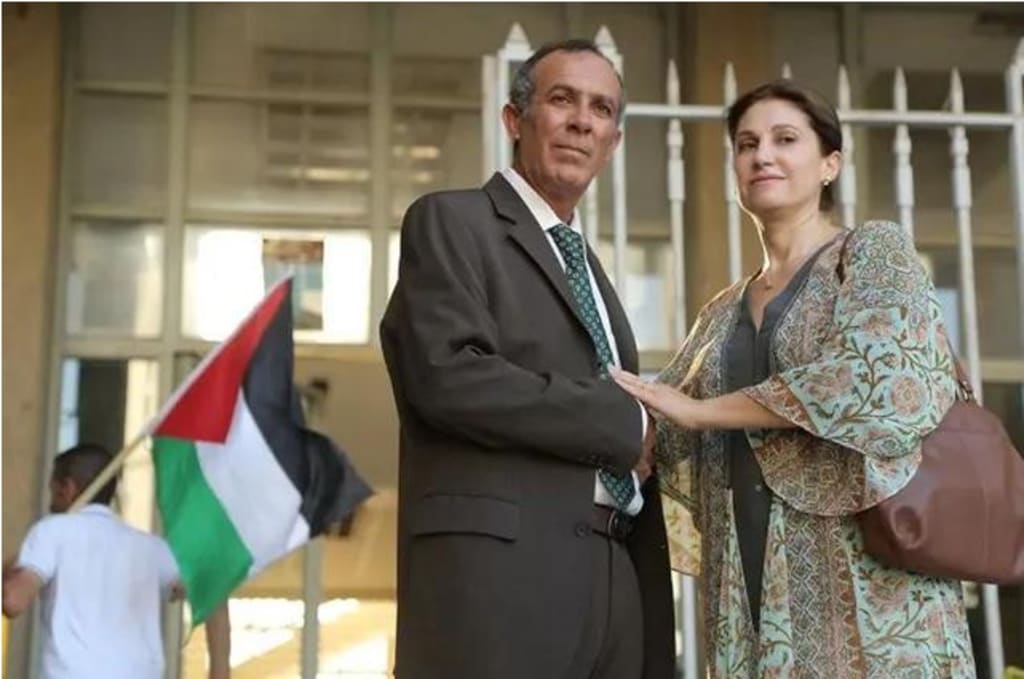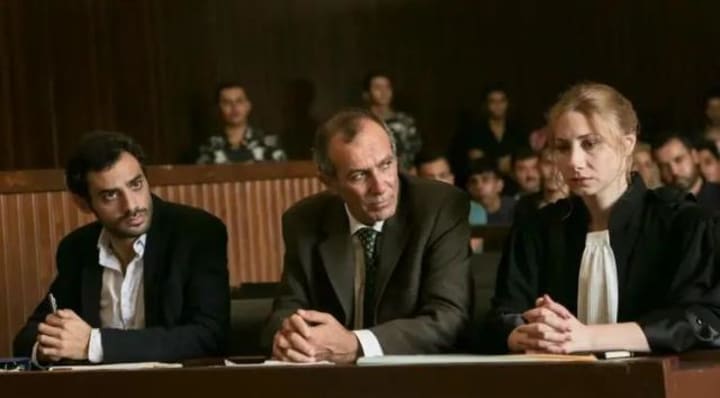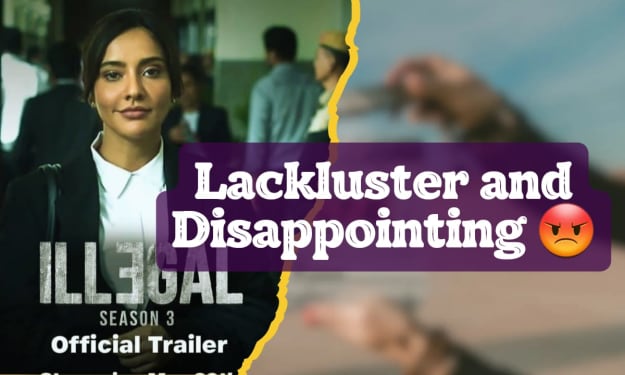What did the phrase that triggered the national crisis really say?
There is a saying that "if you don't go through the suffering of others, don't advise others to be good", this saying is well understood, each person has his unique experience, when we interact with people, try to understand other people's experience, in order to better understand others.

The film we recommend to you today is about a series of conflicts triggered by a lack of understanding, a small matter that could have been negligible and eventually evolved into a political conflict. This film is "Shame", a conflict between a Lebanese car mechanic and a Pakistani refugee who works as a construction worker, and this conflict, through continuous evolution, eventually produces incalculable results. Eventually, the conflict between the two men turns into an ethnic political crisis.

A section of water pipe was exposed on the balcony of the repairman's house, and when the repairman started to water the flowers, the water flowed out along the pipe and nourished the construction worker, who found the repairman to theorize about it, and the repairman was indifferent. So, the construction worker chose to deal with it himself, and he transformed the balcony water pipe of the repairer's house, which finally solved this problem completely, however, the repairer did not buy it. In his opinion, the builder was humiliated by the decision he made without being informed. Thus, the conflict began.

Finally, when the builder came to the door to apologize to the repairer, the repairer's words "how come the salon didn't exterminate you" completely angered the builder, and the conflict broke out incredibly. As the conflict intensified, lawyers from both sides appeared on the scene, followed by newspapers, TV stations, and the Internet, fermenting the incident, which was originally a small conflict, but eventually led to a conflict crisis between the two peoples. The President of Lebanon had to intervene. The lives of two very ordinary people were completely changed.

In the end, the court decided to pass a verdict, and privately, some kind of reconciliation was reached between the two people. Because they both saw that such a very small thing turned out to be some kind of national crisis, which they did not want to see. The root cause of this crisis is the communication and understanding that we know so well, and when this communication and understanding do not exist, any small thing can end up causing unrest.

The film "Shame" seems incredible to us, yet for Middle Eastern countries, the thoughts this film provokes will be even heavier. What have they done for decades about the conflict between the two peoples? Are people expecting peace? Why do people want to start wars? The root causes of the conflict between Jews and Palestinians are no longer mentioned by anyone, but the consequences of this conflict are shared by thousands of ordinary people. This in itself is a very unfair thing.

The two ordinary people in the film, whose lives are quiet and simple, hard-working people anywhere, are worthy of respect from others, but when the environment they are in is affected by extreme public opinion, what kind of life will come to each of them? Let's bring in the two characters separately and experience their respective life circumstances, which may give a clear answer.

For the tinkerer, his life begins with a crisis in his childhood that makes him not want to go back to the hometown that left a "deep impression" on him for decades. As an adult, he lived under a military government and was very much identified with dictatorship and power. Under totalitarian rule, people need a sense of identity and reject outsiders. This is the root of the crisis shown in this film. The repairman has been so imbued with centralism that equal communication is not his first choice in daily life.

For the construction workers, who have fled their homes as a result of the Israeli-Palestinian conflict, the world sympathizes with the Palestinians, but this sympathy is not a meal. As refugees, they live in camps and do not have official status. Construction workers, despite their dedication and skill, are forced to work in the dark. In a life of subservience, the builders themselves are stoic, but anyone who has been stoic for a long time needs a ruthless outburst, and this outburst is ignited by the repairman.

When the repairman said that, everything was out of control. The angry builder couldn't tolerate the harm of the words to himself, and at this moment, the humiliation of the nation, the suffering of the country, and the personal misery all came to his mind. The conflict broke out. The obstinate repairman did not think he had committed a heinous crime. Instead, he simply thought that the builder did not respect himself enough. So the crisis intensified. Eventually, the altercation between the two men triggers an ethnic conflict between the Lebanese and the Palestinian refugees.

In a story like this, what we need is to understand the bitter history behind the two peoples, yet the essence of the story is nothing more than a mere verbal conflict, and if the two men had been able to understand each other, they would not have gone to court. In reality, there is no insurmountable basis for the conflict between the two people, so when the conflict intensified, they finally chose to shake hands and make peace in private. It can be seen that the conflict can be solved, and the conflict after the lack of understanding, in addition to the arch fire, there is no benefit. Therefore, this film fully tells us, long live understanding, and bad communication may trigger a crisis.
About the Creator
Phoenix
Victory won't come to me unless I go to it.






Comments
There are no comments for this story
Be the first to respond and start the conversation.